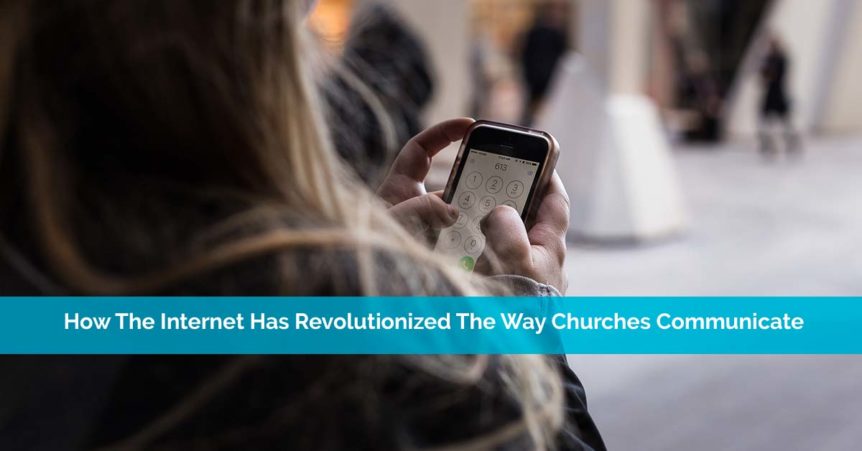It’s undeniable that the Internet has changed the way churches communicate. Gone are the days of a few conversations after church, only to see members again during service hours or special appointments.
Now, it’s easier than ever to send an inspirational message in a few clicks or ask for prayers from hundreds of miles away. The possibilities are seemingly endless. While it’s true that some believe the Internet has hurt churches, the digital world has actually opened up more lines of faith-based communication than ever before.
Reach Members Any Time
Your members come to church to worship together, but they encounter issues throughout the week that may test their faith. With social media, a blog or even an email, church leaders can reach out to provide scripture related to current events or remind a member that’s struggling with their own personal demons that you’re there for them.
Of course, it’s not just church leaders who connect. Thanks to social media or even forums on your church website, members can provide support and encouragement to each other. Instead of being too busy to get together, they can socialize online and keep that feel of community even when they’re not at church.
Engage With Non-Members Easily
Pope Francis is the perfect example of engaging with non-members thanks to the Internet. His Twitter account currently has 10.5 million followers at the time of writing. While many of those followers are likely members of a church, there are plenty that likely aren’t. They still find encouragement and motivation from his tweets, though.
In the past, it was difficult to engage with non-members or the unchurched. Thanks to the Internet, they can come to you in their own time. This makes them feel more comfortable and may even lead to them becoming members.
Communicate In Numerous Ways
According to this infographic from Nonprofit Marketing Guide, 80% of non-profits consider their website to be the most effective communication tool. Churches communicate in a variety of different ways now. Phone, physical mail, paper bulletins, and word-of-mouth used to be the only options. Now, you have a variety of social media channels, email, websites, texting and more.
It’s easy to find the new world of options overwhelming but listen to your members. They’ll be happy to let you know which channels they prefer. When it comes to social media, pick a few networks to be active on. The main thing is to keep communication going on a daily basis and not just one or two days a week.
Discuss Questions Throughout The Week
Before the Internet, it was difficult for members to talk to church leaders about any questions that might have regarding sermons or events. Potential members might have felt hesitant to come to church to ask questions before joining.
Now, with email, contact forms on websites and social networks, anyone can contact the church at any time to ask questions. Members can talk to each other easily to further discuss the messages in sermons. This keeps the conversations going long after church is over for the week.
 Reach Those Who May Never Join
Reach Those Who May Never Join
One of the most important ways that the Internet has revolutionized the way churches communicate is by helping churches reach those who many never officially join a physical church. Many people have odd schedules or can’t find the right church for them. Instead, they seek guidance online. They visit church websites, follow church leaders on social media and even watch sermons regularly online.
Some churches are even taking online communication a step further and creating digital churches. For instance, Higher Dimension has both a physical and digital church. People can attend live streaming services from anywhere. They can also playback services if they couldn’t stream live. This new option gives people a chance to worship on any schedule and from any place around the world.
The Internet is something to embrace. Use it as another way to better connect and engage your members and reach non-members. It’s a valuable tool for communication and church growth.
Ready to revolutionize how your church communicates? Start with a professionally designed website from people who understand church websites.

